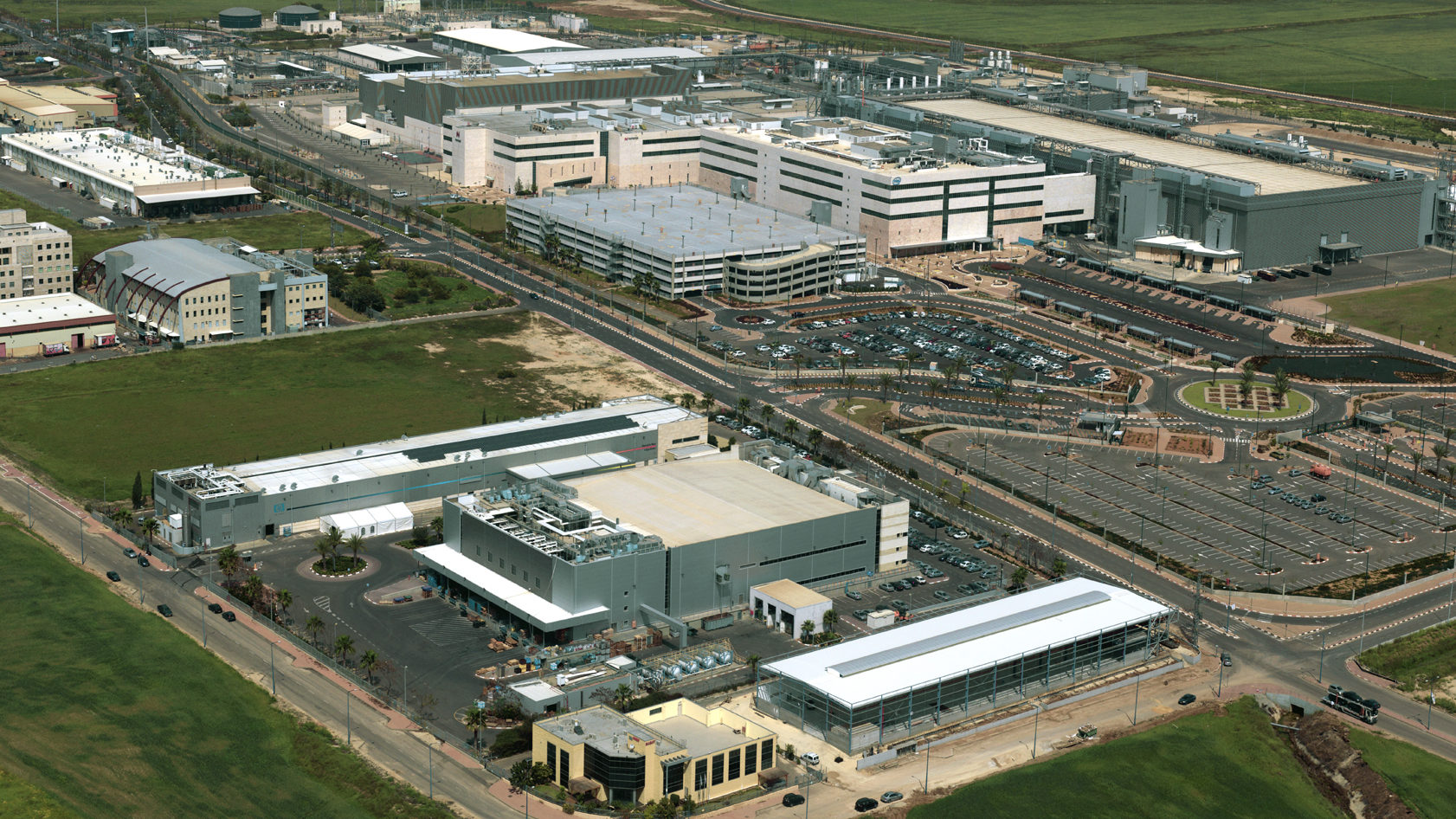Intel to Invest $10B in New Israeli Manufacturing Site
The chip giant will also enlarge its R&D centers in the country at a cost of $600 million
Intel confirmed on Sunday that it had begun building a new manufacturing center at an estimated cost of $10 billion in Kiryat Gat, an Israeli city in the south of the country, where the company already has a large plant. The company also committed to enlarging its research and development centers in Jerusalem and Haifa at a cost of $600 million. Last week, the company said that it planned to employ 1,000 more Israelis, expecting that its Haifa center will develop the “chips of the future.”
Company CEO Pat Gelsinger, who visited Israel on Sunday, said in a statement that Intel’s continued investments in the country, whether directly or by buying local startups, “promise a vibrant future for Intel and Israel for decades to come.”
Intel has faced stiff competition in recent years. Other tech giants are threatening its share of the chip market. AMD, competing with Intel in the PC processors market, has the company’s engineers sweating to keep up. Apple launched its own computer processer, the M1, bringing with it noteworthy improvements on Intel’s offering. And this is all before mentioning the company’s failure to carve out a share of the smartphone processors industry.
“Their new CEO understood that they needed to make some changes. They’ve fallen asleep at the wheel in recent years to some extent and I think that he’s come to two conclusions: Firstly, that they need to rev the engines, and secondly, it needs to be done in Israel,” Shlomo Gradman, chairman of the Israeli High Tech CEO Forum and CEO of ASG Ltd., an Israeli company specializing in conferences and workshops for the local tech industry, told The Media Line.
Gradman says that Israel is a global leader in chip development, which is a central component of the local tech industry, of vital importance to the country’s economy and world-renowned. Apple, Nvidia, Google, Facebook and Microsoft, all huge multinationals that require no introduction, have either invested in Israeli chip development teams or, reportedly, intend to.
But Intel arrived on the scene first and has had a long and successful relationship with Israeli innovators. The company’s history in the country stretches back almost five decades. Its first offices in the country were opened in 1974 by Dov Frohman, an Israeli physicist who begun working for the company in the US. Intel’s centers in the country were a great success. “The moment they built their center here, they started using Israeli engineers and saw that there’s an excellent group of minds here, and it’s grown as time went on,” says Gradman.
Over the years, a large portion of Intel’s chip technology was developed in the Israeli research facilities, Gradman said, and “to this day, Intel’s most advanced developments are fruits of” the Israeli R&D centers. Not only that, but the company’s efforts to establish itself in two key developing industries – the computerized automotive market and AI computing – revolve around Israeli startups purchased by Intel.
The company’s manufacturing operations were also a great success. “The plant never failed to deliver chips and equipment on time, and so they saw that it’s worth their while to work in Israel,” according to Gradman. The new, expensive manufacturing site, the industry expert explains, is a necessary upgrade created by the ever-progressing technology.
Over the years, the Israeli government gave the company various incentives to operate in the country, and the Israeli financial newspaper The Marker reported that Intel will receive a 3.5 billion shekel ($1.1 billion) grant for building the new plant in Kiryat Gat. However, Gradman estimates that this support, which didn’t cover the company’s investments to a significant degree, wasn’t central to its decision to operate in Israel.
Aviram Dahari, the mayor of Kiryat Gat, where Intel’s new factory is being built next to its veteran facility, told The Media Line, “The main impact of [the presence of] Intel is felt by the Israeli economy in its entirety.”

Kiryat Gat Mayor Aviram Dahari. (Courtesy Kiryat Gat Municipality)
Contrary to small startup companies, comprising mainly engineers and other specialists, the presence of large plants and offices creates a ripple effect of employment that reaches outside the sphere of specialized workforce to administrative and logistical staff, for example, thus contributing to a larger segment of the population. With the company’s new plant being constructed in the city, Dahari says that “without a doubt, Kiryat Gat is slowly becoming Israel’s new center.” The mayor notes that the city is undergoing exceptionally rapid growth in residential construction and is expected to become “Israel’s next metropolis with some 400,000 residents.”
Gradman, however, sounds the alarm on one issue that could cause Israel’s pioneering rush in the chip industry to stumble. “Without a doubt, we have an issue of an excess in the demand [for engineers] over the supply,” he said. Despite its centrality, Israel’s high-tech industry suffers from a chronic shortage of manpower.
“There’s a shortage in engineers already and the rush of all those large, multinational companies on the workforce in the country” adds to this. If the government doesn’t take the actions necessary to increase the number of engineers in the market, he warns, companies will have a hard time filling the ranks, and those that do find suitable candidates will have to pay dearly to hire them. Both of these are issues that, if allowed to worsen, will end up driving those very same multinational giants elsewhere.


